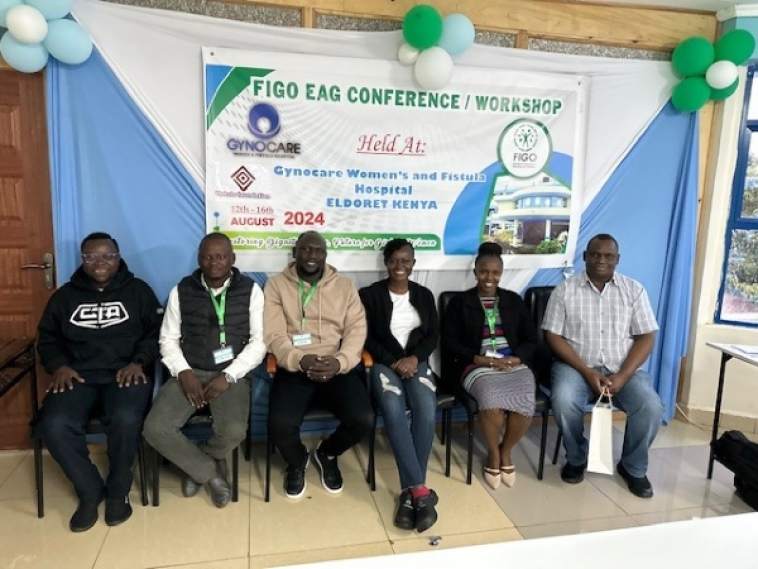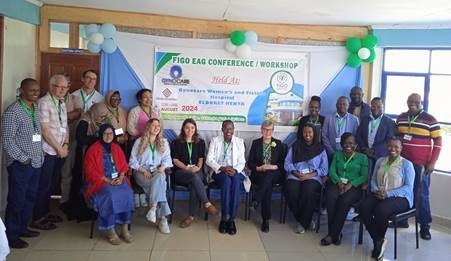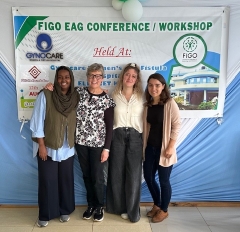Expert Advisory Group (EAG) meeting and regional surgical workshop: Fistula care in Eldoret, Kenya

In August 2024, the FIGO Fistula Surgery Training Initiative (FSTI) project team convened the Expert Advisory Group (EAG) for the annual meeting, followed by a hands-on workshop for Kenyan Fellows.
The meetings took place in Gynocare Women's and Fistula Hospital in Eldoret, Kenya – a facility that has become synonymous with hope and healing for women suffering from obstetric fistula.
Dr Hillary Mabeya, founder of Gynocare, FIGO Trainer and EAG member, was delighted to welcome everyone to the hospital which has been one of the initiative's flagship training centres since 2014.
The Expert Advisory Group (EAG) meeting
Bringing together the initiative’s head trainers and expert fistula surgeons from Africa and Asia, the meeting was chaired by Dr Andrew Browning who, as always, kept everyone on track as the group went through the packed agenda. In addition to covering key initiative-related activities such as project updates, including progress, challenges and achievements since the last meeting, EAG members also shared their most recent training and coaching experiences with the rest of the group.

A part of the meeting was also spent discussing the potential development of a formal curriculum for holistic care teams including nurses, physiotherapists and psychologists to strengthen this component of the FSTI. This was followed by a peer review of final drafts of fistula publications, including a good practice recommendation, as well as a position statement on post-obstetric fistula repair incontinence (POFRI), which the EAG aims to publish in the coming months.
The two-day meeting concluded with a tour of the hospital, including the social rehabilitation and reintegration services that Gynocare provides for fistula patients through the on-site organisation, Beyond Fistula.
Regional surgical workshop and equipment review
The surgical workshop began the next day, providing Kenyan Fellows with the opportunity to work alongside FIGO Trainers to further develop their fistula repair skills. Each day was carefully planned, the mornings were spent discussing the patients and their respective procedures, while the afternoons were dedicated to doing the surgical operations, with three theatres running simultaneously, followed by a summary of the daily proceedings. FIGO Trainers and Fellows also gave presentations on topics relevant to the workshop, such as POFRI, bedside cystometry, Vesico-Uterine Fistula and running a fistula unit. Presentations from the workshop can be downloaded below.
Tim Beacon from Medical Aid International also joined the workshop for one day and with EAG members and the Fellows, undertook a review of the current FIGO Fistula Instrument Set, noting requested changes from the group, which the project team hopes to put in place in the future.

The workshop drew to a close when Fellows presented their specific fistula contexts in Kenya, and explained in detail their challenges working in remote areas, with large numbers of fistula patients and busy hospital schedules, which proved valuable and informative for all participants.
The FIGO Team is delighted with the outcomes of the meetings and would like to sincerely thank Dr Mabeya, and the entire Gynocare team for the warm welcome and for hosting these two excellent and unforgettable gatherings.
All surgical presentations from the expert surgical workshop are now available online.
The workshop was funded by Texas Children’s Hospital and an anonymous foundation.